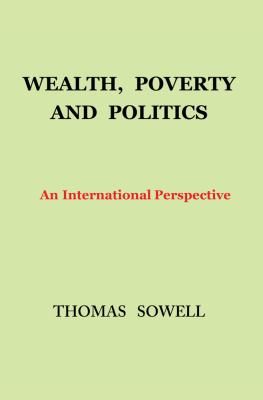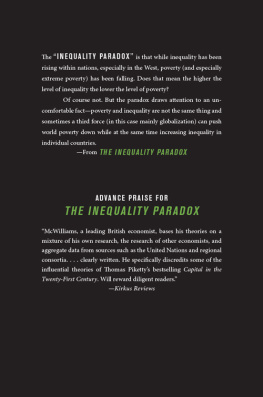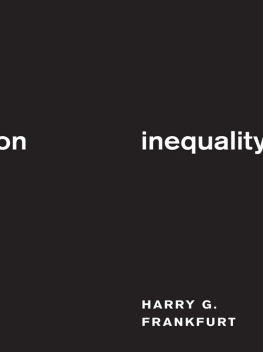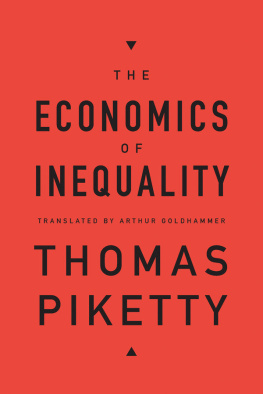
Copyright 2015 by Thomas Sowell
Published by Basic Books,
A Member of the Perseus Books Group
All rights reserved. Printed in the United States of America. No part of this book may be reproduced in any manner whatsoever without written permission except in the case of brief quotations embodied in critical articles and reviews. For information, address Basic Books, 250 West 57th Street, 15th Floor, New York, NY 10107.
Books published by Basic Books are available at special discounts for bulk purchases in the United States by corporations, institutions, and other organizations. For more information, please contact the Special Markets Department at the Perseus Books Group, 2300 Chestnut Street, Suite 200, Philadelphia, PA 19103, or call (800) 810-4145, ext. 5000, or e-mail .
Library of Congress Control Number: 2015934248
A CIP catalog record for this book is available from the Library of Congress.
ISBN: 978-0-465-07348-1 (e-book)
10 9 8 7 6 5 4 3 2 1
CONTENTS
S hocked as we may be today by drastic contrasts between the standards of living in modern industrial nations and the standards of living in Third World countries, such disparities have been common for thousands of years of recorded history. These disparities have extended beyond wealth to the things that create wealthincluding the knowledge, skills, habits and discipline that have developed unequally in different geographic, cultural and political settings.
The ancient Greeks had geometry, philosophy, architecture and literature at a time when Britain was a land of illiterate tribal peoples, living at a primitive level. Athens had the Acropoliswhose ruins are still impressive today, thousands of years laterat a time when there was not a single building in all of Britain. The ancient Greeks had Plato, Aristotle, Euclid and other landmark figures who helped lay the intellectual foundations of Western civilization, at a time when there was not a single Briton whose name had entered the pages of history.
Scholars have estimated that there were parts of Europe in ancient times that were living at a level that Greece had transcended thousands of years earlier.
Vast disparities in wealth, and in wealth-creating capacity, have been common for millennia. But while large economic inequalities have persisted throughout the recorded history of the human race, the particular pattern of those inequalities has changed drastically over the centuries. While Greeks were far more advanced than Britons in ancient times, Britons were far more advanced than Greeks in the nineteenth century, when Britain led the world into the industrial age.
The Chinese were for centuries more advanced than any of the Europeans, including among their discoveries and inventions the compass, printing, paper, rudders and the porcelain plates that the West called chinaware or simply china. Cast iron was produced in China a thousand years before it was produced in Europe. But the relative positions of China and Europe also reversed over the centuries. Various other peoples, living in various other parts of the world, have had their own eras of leadership in particular fields or in advances across many specialties.
Agriculture, perhaps the most life-changing advance in the evolution of human societies, came to Europe from the Middle East in ancient times. Agriculture made cities possible, while hunter-gatherers required far too much land to provide themselves with food for them to settle permanently in such compact and densely populated communities. Moreover, for centuries cities around the world have produced a wholly disproportionate share of all the advances in the arts, sciences and technology, compared to the achievements of a similar number of people scattered in the hinterlands.
Because Greeks were located nearer to the Middle East than the peoples of Northern Europe or Western Europe, agriculture spread to the Greeks earlier and they could become urbanized earlierby centuriesand advanced in many ways far beyond peoples elsewhere who had not yet received the many benefits made possible by urban living. The accident of geographic location could not create genius, but it made possible a setting in which many people could develop their own mental potential far beyond what was possible among bands of hunter-gatherers roaming over vast territory, preoccupied with the pressing need to search for food.
Geography is just one of the influences behind vast economic differences among peoples and places. Moreover, these differences are not simply differences in standards of living, important as such differences are. Different geographic settings also expand or restrict the development of peoples own mental potential into what economists call their human capital by presenting different peoples with access to a wider or narrower cultural universe. These geographic settings differ not only horizontallyas between Europe, Asia and Africa, for examplebut also vertically, as between peoples of the plains versus peoples living up in the mountains. As one geographic study put it:
Mountain regions discourage the budding of genius because they are areas of isolation, confinement, remote from the great currents of men and ideas that move along the river valleys.
Many mountain regions around the worldwhether the Appalachian Mountains in the United States, the Rif Mountains of Morocco, the Pindus Mountains of Greece, the Himalayas or other mountains elsewhereshow very similar patterns of poverty and backwardness. As distinguished French historian Fernand Braudel put it, Mountain life persistently lagged behind the plain. This was especially so during the millennia before the transportation and communications revolutions of the past two centuries, which belatedly brought more of the progress of the outside world to isolated mountain villages. What these technological revolutions could not bring to the mountains, however, were the previous centuries of cultural development that other people had in more favorable environments. Peoples living in mountains could try to catch up, but of course the rest of the world would not be standing still while they were doing so.
Mountains are just one geographic feature, and geography is just one influence on human development. But whether considering geography or culture, isolation is a recurring factor in poverty and backwardness around the world, whether that is physical isolation or cultural isolation, for any number of particular reasons that will be explored in the chapters ahead.
Whatever the reasons for economic disparities among peoples and nations, such disparities have been as common in modern times as in ancient times. In the twenty-first century, Switzerland, Denmark and Germany have each had more than three times the per capita Gross Domestic Product (GDP) of Albania, Serbia or Ukraine, and Norway has had more than five times the per capita GDP of these latter countries.
Within nations, as well as between nations, income disparities abound, whether between classes, races or other subdivisions of the human species. Reactions to these economic disparities have ranged from resignation to revolution. Because many people regard these disparities in their own country as strange, if not sinister, it is necessary to note that such disparities are not peculiar to any particular time or place. Therefore explanations of economic differences cannot be confined to factors peculiar to a particular time or place, such as modern capitalism or the industrial revolution, much less to factors that are politically convenient or emotionally satisfying.
Factors which raise morally momentous issues, such as conquest and enslavement, cannot automatically be assumed to be equally momentous as
Next page

















